Post Sunday mass, a stimulating lunch, ideas emerging, possibilities becoming a reality. Adult in formation, I feel prayers are being blessed, grace extended. My lunch appeased, stirring upon satisfying depth. The gentleman sharing lunch, designing his demise, intrigues upon an intellectual level that will be pursued. I am trying to convince him to allow me to create a website for him. An amateur photographer, images centered upon religious architecture, worldly in travel, he showed me around Chinatown, talking of many things. He is old school in regards to his photographs, nothing digital. I want to convert the images to binary, allowing display upon the web. He has photographed monasteries and churches in Spain, France, Russia, Turkey, throughout the United States, not allowing his vision to rest solely upon Catholic institutions. I spoke with the gentleman before mass, praying intensely during mass upon the matter, convinced it was a design of God for me to work with the well-educated gentleman. I have been wrong before. I think he is leery about me as academic credentials equate esteem within his eyes. Possessing a doctorate, speaking of highly educated friends, a Cuban poet friend of advanced studies writing a history detailing the multiethnic nature of Peru. Amusingly, conversation steered toward Pittsburg, Duquesne University, the focus being Father Adrian Van Kaam, a man who shaped his spirituality. I smiled, mentioning Susan Muto and Father Van Kaam joining forces through their efforts with the Epiphany Association, Academy of Formative Spirituality. Previous post document my invigorated interest for the message of Ms. Muto. For my new friend, she is a former student, an associate, a person of individuality and knowing. Startled, interiorly I counted my blessings. It was amazing we were talking so flowingly. God is good. Many more topics exposed, the potentiality of a meaningful relationship rests within Divine Will. I reflect upon tomorrow’s cook out with the associates of the Congregation of the Blessed Sacrament, the meeting with the author Father Paul Bernier, and immediately after the commencing of the cookout travel to Fremont and the retreat at Our Lady of Pines. Something is in the wind, adults of spiritual formation are being brought to light, a revealing being experienced. Another woman from St Paul’s was brought into confidence. Last summer she enjoyed a week long retreat at Our Lady of Pines. She is excited for me, extending well-wishes and prayers.
The following part of the post, created in the morning, before mass, I decided not to post. Gathering my thoughts, I said no, I will post everything. I have been suffering awful dreams the past several nights. The blessings of the afternoon overwhelm the morning, yet the morning was important, especially coming after another nightmare involving Ann. It is an email to my Romanian friend Lavinia that exploded into many thoughts and directions. I think important matters were touched upon. This blog is essential to cleansing. It serves a tremendous purpose. The spewing of thoughts and words provides psychic purgation. I move forward, progressing, means of regressing cathartically removed. Lavinia has been there for years supporting in reading and observing my thoughts, ideas, and writing. Her friendship is a blessing, simple and sincere, absolutely nothing immoral regarding motivation or interaction. We expand one another’s spiritual life. We are better people through our interacting, nurturing growth. It is an elder to one younger, foreigners yet friends, equals in decency and respect.
Email to Lavinia:
Ann does mean well, yet she hides. Definitive, she hides from feelings, from emotions. On the deepest level, she is a stranger to herself. Growth, maturing, spiritual expansion only arises from love, learning to love we expand within. Experience is the educator, the process of formation. You are growing into a new woman, Gabriel a new man, through being parents. Trinitarian, a family: father, mother, and child is a profound formation to be engaged within. Raising your son Calin, you not only know about a greater love, you experience a greater love, formation in progress. Watching Calin grow, knowing how much you mean to him as a mother and father forms you into a new person, a wiser more mature man and woman blossoms from your experience, an authentic mother and father emerges, individuals vulnerable to the tender mercy of God. You know commitment on the most profound level. Love, the greatest attribute of God, induces a growth that must be experienced. No book or high amount of intelligence can provide the grace. Ann will not allow a higher love to touch her, protecting herself, not knowing herself well enough to allow such splendor to immerse her being, not trusting God enough to allow the supernatural to transform through the ordinary, the extraordinary to infuse a metamorphism through daily reality. However God always acting, her state of immaturity saved my life. A woman of intensely high caliper, exceptional talents and intelligence blessed by God, should have been married to a man equal in Godly blessings; active in the lives of brothers and sisters, knowing and experiencing love, immersed within the lives of children, people bountiful in number through in-laws. However her brokenness, her inability to allow life to penetrate, an obstinate refusal to open herself, to become vulnerable, forced her into a loneliness. Her estrangement to proper love, or the seeds of love, allows an overriding immaturity to consume her inner most being. I remember distinctly the night I knew things were futile, an effort of disgrace being intimately involved with her. She had the day off, a Monday, telling me she was spending the day with her girlfriend. She did not come home to well after midnight, never calling. Walking into her home, the look of a fifteen year old was imprinted upon her face. I could only fear what conniving and scheming her teenage mindset had put into action. In truth, I was dealing with a broken little girl exercising free will, manipulating her way through life, unable to intimately interact with others as an adult. Dr. Nichta stresses not only the importance of self-knowledge, yet also the proper identifying of others. I must accept others for who they are. I cannot expect people to be who I want them to be, or who I think they can become. I must accept people for who they are. No matter how gifted, Ann at her core is an immature woman unable to know the possibilities of love, or how to interact with others with respect to an adult comprehension of love and respect. The formation has just never been exercised. God does not leave us alone. She is too special. God never abandons his chosen ones. In her broken state, she drove to Toledo and picked me up, removing me in my awful condition from that hotel room, saving my life. Something potential, powerful in dimension was offered to both of us. Through self-discovery, self-awareness sets in, I am a holy man, gifted to a humble degree. I know that more and more, learning about myself on a level that only experience teaches. Formation occurs only through experience. Wisdom garnered through living. Reading, studying, teaching, and counsel cannot offer what life supplies. Prayers are essential, enriching interiorly. Sharing stories, parables, come the closest to embracing the graces existing within exterior communication. Jesus spoke through parables. Knowing I am a holy man is also knowing my weaknesses–the fact I am an alcoholic. I was thinking this morning, the third day of a ten day vacation, that if I were drinking, I would be drunk right now upon waking. Days would blend into a confusing loss of clarity, two or three drunks a day, the early morning drunk my favorite. By the fourth or fifth day, I would have lost track of days, even time itself, not sure if it was morning, night, or day, not caring, consumed within an overwhelming misery that physically makes the flesh crawl. Insane, extreme adventures would have ensued, writing to you a part. God always protected me during these awful times, yet the dreadfulness was dangerous. Experience can also be a teacher of horrible things. Grace abounds were sin increases. Wisdom exist within depravity, however its lesson is so tremendous it can crush eternally. Becoming a parent forms through love, wretched things teach through excruciating terror and despair. Watching ‘Mysteries of Lisbon’, I marveled at the fact, these royal, extremely wealthy individuals living life on an extravagant materialistic and social level did not revel in the majesty of their elevated worldly status, rather self-absorption captured them in lives of gloom, despondency overwhelming individual experiences through intense emotion and intricate designs, love a phantom being chased, life a drama being acted upon a stage, the end pointing to an unseen force, Divine Will, always subtly playing within the tenderable conniving of men and women. Ann’s brokenness, her self-willed attempts to be a heroic figure acting through reason for the benefit of God, underestimated God. God is above, while within our schemes reposes the potential for a revealing upon the divine level, a step forward upon a path of perfection.
Second daily reading 2 Corinthians 12:7-10
Brothers and sisters: that I, Paul, might not become too elated because of the abundance of revelations, a thorn was given me in the flesh, a messenger of Satan, to harass me, to keep me from being too elated. Three times I besought the Lord about this, that it should leave me; but he said to me, “My grace is sufficient for you, for my power is made perfect in weakness.” I will all the more gladly boast of my weaknesses, that the power of Christ may rest upon me. For the sake of Christ, then, I am content with weaknesses, insults, hardships, persecutions, and calamities; for when I am weak, then I am strong.
DIALOG: ‘Mysteries of Lisbon’. Something is there, many thoughts regarding matters. I just present the words shared between characters, stories in the telling.
SCENE. JOAO, A YOUNG MAN, IN A CEMETERY. A DISFIGURED BLIND BEGGAR APPROACHES.
Joao: Can I help you?
Blind Beggar: Oh, sir, please…Are we in the eastern part of the cemetery?
Joao: Yes…We’re in the right place…it’s here…
Blind Beggar: Thank you very much. I’m looking for the mausoleum where my daughter is…
Joao: Mausoleum?
Blind Beggar: My friends assure me it is monumental. My friends say it is the most beautiful in the entire cemetery…I’m unable to see it. With the last money left from my fortune, I had this mausoleum built…Would you be so kind as to describe it to me? It’s beautiful, isn’t it? I don’t know if I would be able…I am the Marquis of Montezelos. What is your name?
Joao: I am a simple student, Marquis…my mother died and I came to visit her…
Blind Beggar: So your mother is also in a mausoleum, right?
Joao: No, Marquis, my mother is in a common pauper’s grave…
Blind Beggar: Poor woman. Had I mentioned to you that I was a bad father? No. I hadn’t. This head of mine, and now, as you see I am a beggar, and now that we’re having this conversation, would you happen to have a small coin, for the love of God?
Joao: Of course…
Blind Beggar: Thank you very much…
Joao: Marquis, your friends are waiting for you…
Common Beggar: Poor Marquis. He’s lost his mind…The accident…
Joao: He had an accident?
Common Beggar: It wasn’t an accident…more of a failed suicide attempt…His daughter’s dishonor…What to us are the things of life, are enormous tragedies to the nobility…He fired the shot as they left the Mass. He didn’t kill himself, but he was blinded. He wasted away the fortune and people were moved by this sadness. They were moved by a beggar Marquis and still give him a lot of money. That’s the blessing of beggars…Even in disgrace, the nobles are favored.
Joao: And the mausoleum?
Common Beggar: The mausoleum doesn’t exist. It was an invention of the Marquis…
Blind Beggar: Where are you , Manuel?
Common Beggar: I’m here, Marquis.
Blind Beggar: I’ll be right there! Please excuse me…
SCENE CHANGE. JOAO DEBOARDING A SHIP.
Joao (Voice Over): I’ve heard that Alberto de Magalhaes (his savior at birth, the man he challenged to a duel, a man of many identities who saved his life a second time) has enjoyed excellent health. You lacked courage my dear. And I, whose heart you once possessed…My life no longer made any sense. My only thought was to disappear, to lose myself quickly, completely…and without a trace…I caught the first boat I found, bound for Tangiers, which allowed me to board for the coins I still had in my pocket…One soon discovers that it is not difficult to disappear from the eyes of others, but that our own eyes follow us wherever we go. I continued to travel randomly, aimlessly, to lose myself. I don’t know how, but the representatives of Alberto Magalhaes never lost my trail and I continued to regularly receive the money intended for me. My footsteps have finally led me here. I don’t think I can go any further. My condition doesn’t allow me many illusions.
Joao (to hotel assistant): Excuse me, could you kindly direct me to an inn that is far from the center of town?
Hotel Assistant: That won’t be easy. Most of our inns are right in the center.
Joao: In that case, I’ll have to settle for the closest.
Hotel Assistant: This is the closest.
Joao: Thank you.
SCENE CHANGE. TIME CHANGE. JOAO A TEENAGER LYING AWKWARDLY UPSIDE DOWN IN BED.
Joao (voice over): I was fifteen years old and I didn’t know who I was at all…Sometimes, the others would ask me if I was Father Dinis’ son…I didn’t know how to answer them. They all had surnames…four, five, even more…I was just “Joao.” Unlike the others, I went on no family outings, had no holidays, received no presents. I don’t know how long had passed between the time I lost consciousness…and the moment I opened my eyes again…I thought I had dreamt it all.
Nun: Dona Antonia…
Father Dinis: Help him lie down.
Nun: Father Dinis! He is cold.
Father Dinis: We’d better find a doctor! I’ll order the coach to be readied.
THE END
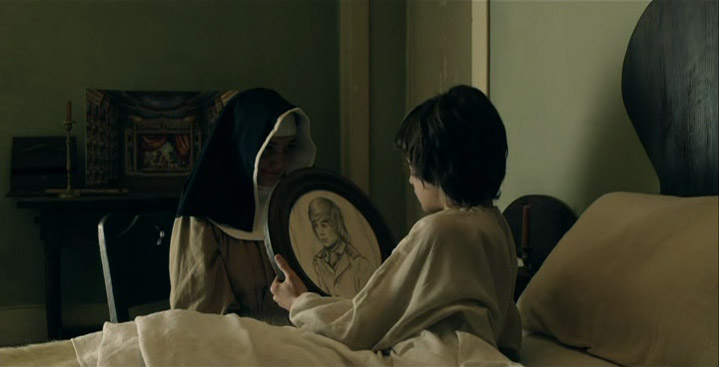
Mixing everything together into a prayer, a final offering is made. Within the novel by Remy Rougeau ‘All We Know of Heaven’, the author strikes moments that absolutely pierce me. This is one. Regarding identity, the pursuit of the spiritual life, a glimpse of clarity within uncertainty, Antoine reflects. He has just suffered a serious face injury due to his mislighting of a gas burner in the kitchen. His accident is put on the backburner as he is rushed by a brother monk out to witness the uncorrupted body of Brother Bernard. Forced to dig up the monastery graveyard during a government forced move, Cistercian monks buried simply in their habit—no casket, the gravediggers discovered Brother Bernard’s body intact, appearing as if he was buried for only days. Three years the body of the holiest and profoundly prayerful brother laid buried in the soil.
A sudden breeze cooled Antoine’s bandaged face and rushed like a sigh in the leaves above him. For a moment he felt as though he would float away, as though his spirit might leave his body and travel away to where Bernard had gone. He wanted to disappear. But when he looked at the faces of the living monks around him, he knew he could not go. A chasm existed between the living and the dead, and he was not ready to cross it.
These odd faces he knew so well, men in search of God, no different from St Anthony or all the holy monks of old, these men had come to a remarkable place called the abbey, not connected to earth by geography. The holy desert. ‘We have come to find God here’, he thought, and ‘we are breathing God. The holy desert is full of God’.
How easy it had been, Antoine realized, these years in the cloister, to construct a sweet little program of the spiritual life. He had tried again and again to frame his spiritual growth within the safe boundaries of his own preferences and talents, his aptitudes and the means he had at hand. But the grand scheme brushes all human constructions aside. If he had succeeded, if his scheme would had worked, he would have led a pleasant, happy but small life, harmless and sunk in mediocrity. But it never came to pass. The abbey was being uprooted. His brothers on the move. All along, the real monastic life of a greater scheme had forced him to practice more than he had thought possible. Detachment, self-denial, charity, all things that make saints, these had come to him in unanticipated ways. The life of the cloister had overturned all his little plans and arrangements, as well as his opinions about others. The manner of death, the expression on a dead man’s face, the color of bones: Antoine knew that none of these things made a difference. He knew, also, looking at the faces of his brothers, that they would become saints, each of them. Either willingly or by force, God would make them saints.
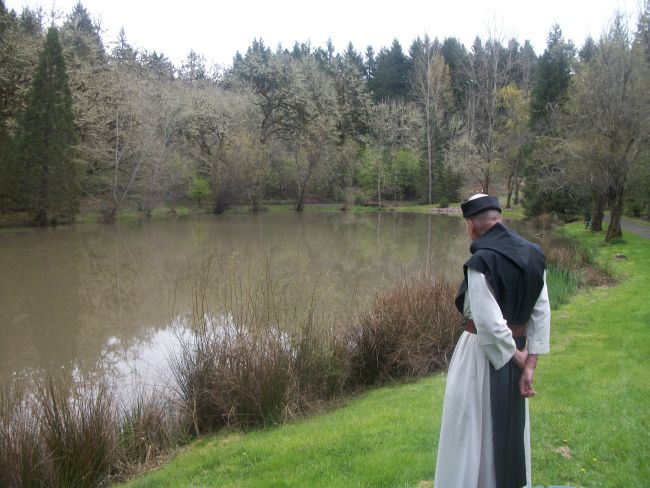

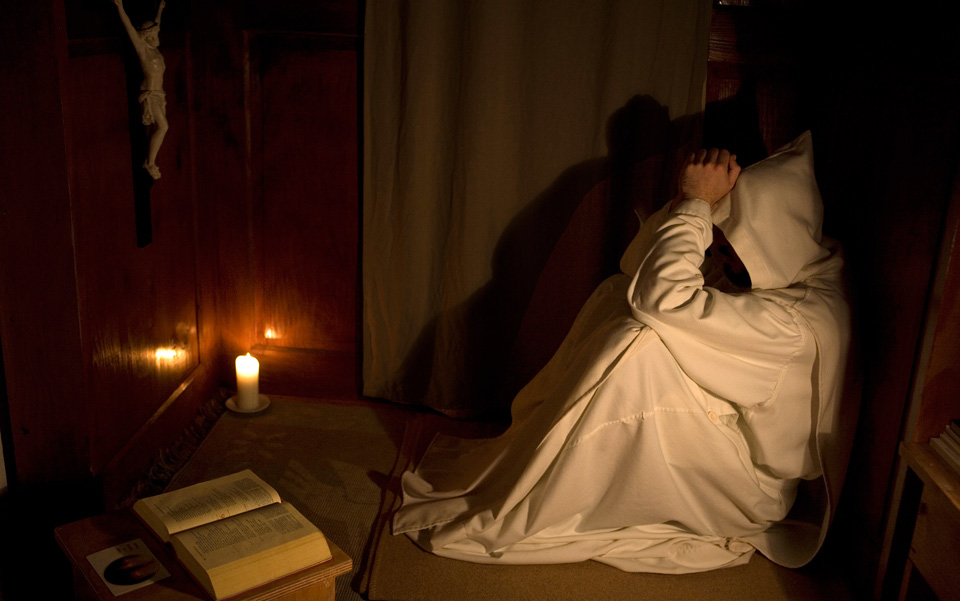

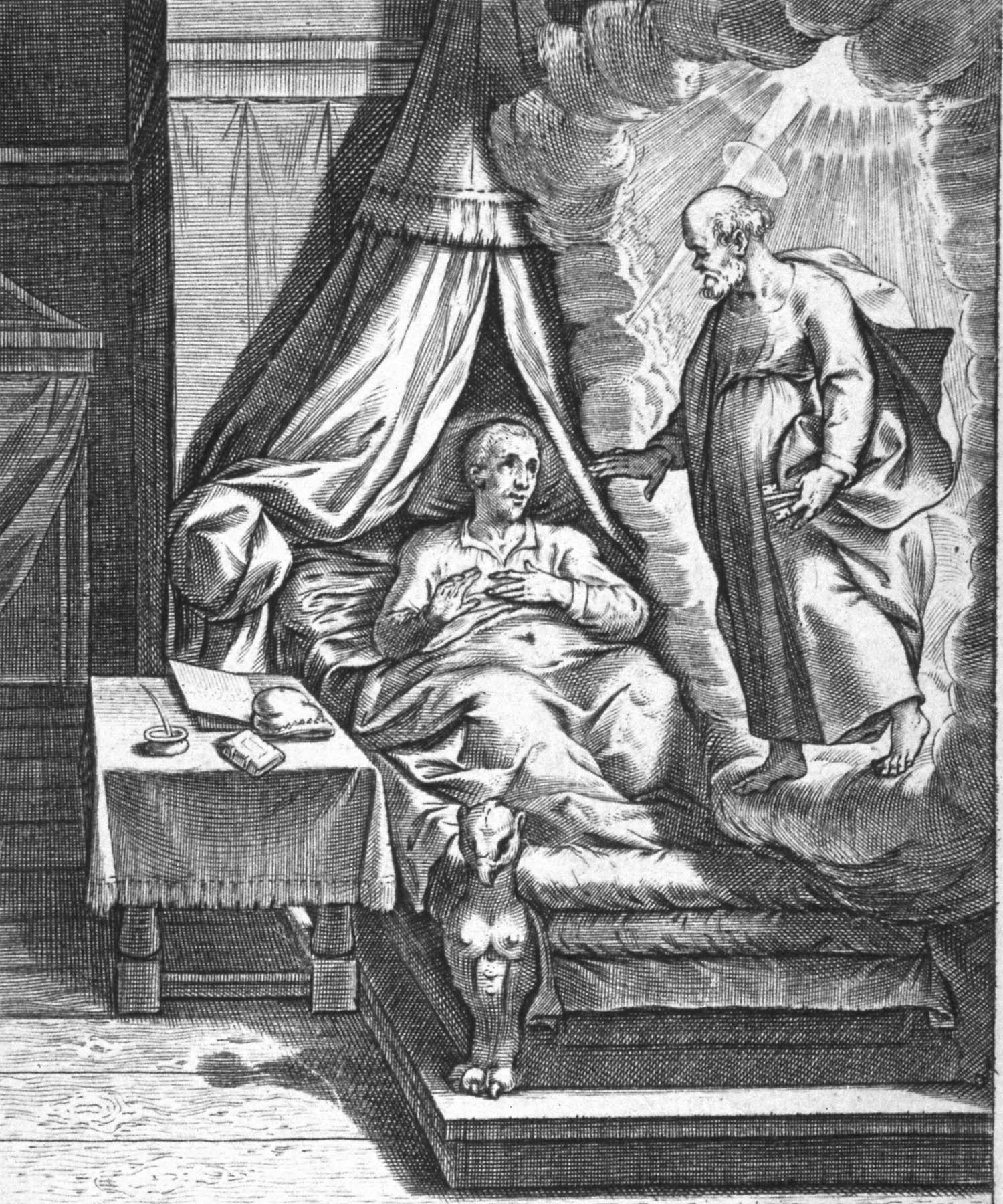
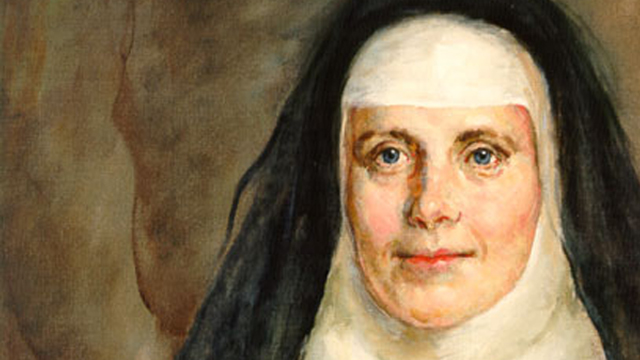
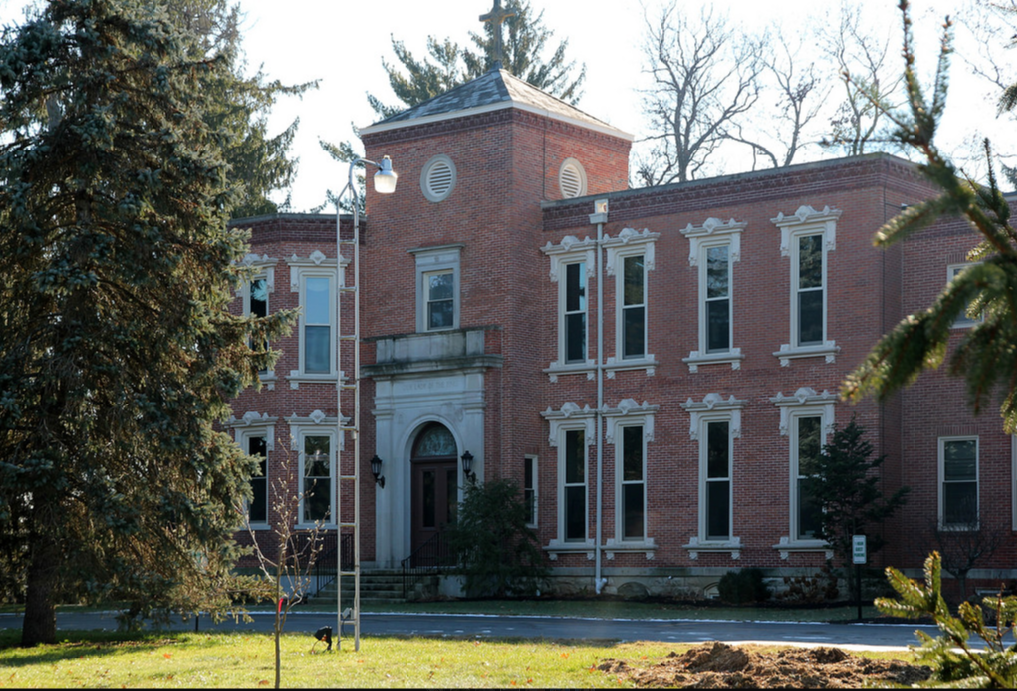
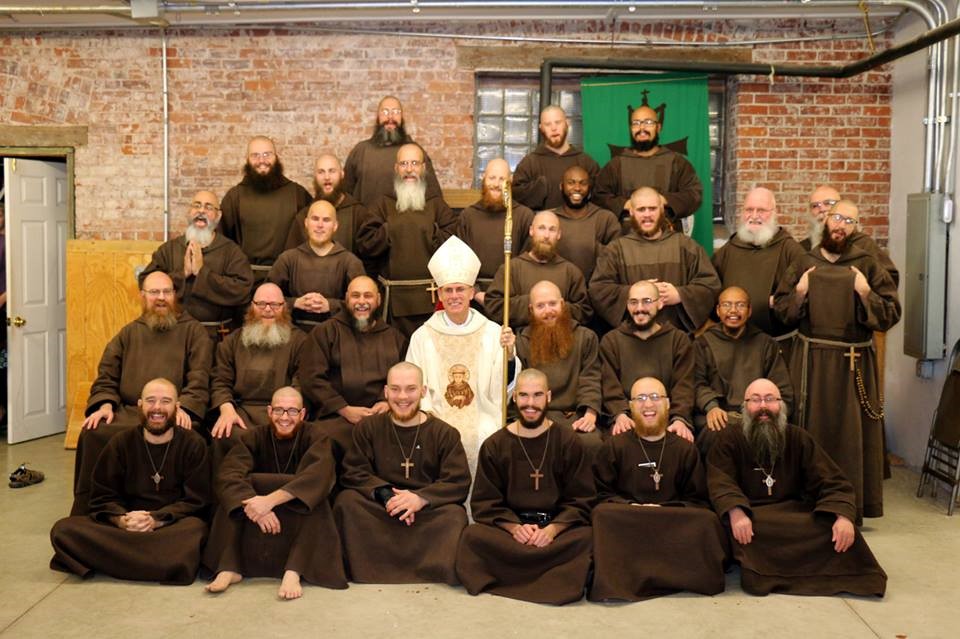
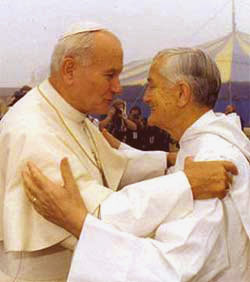
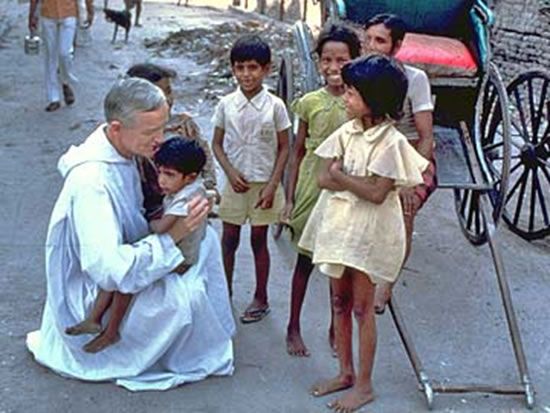


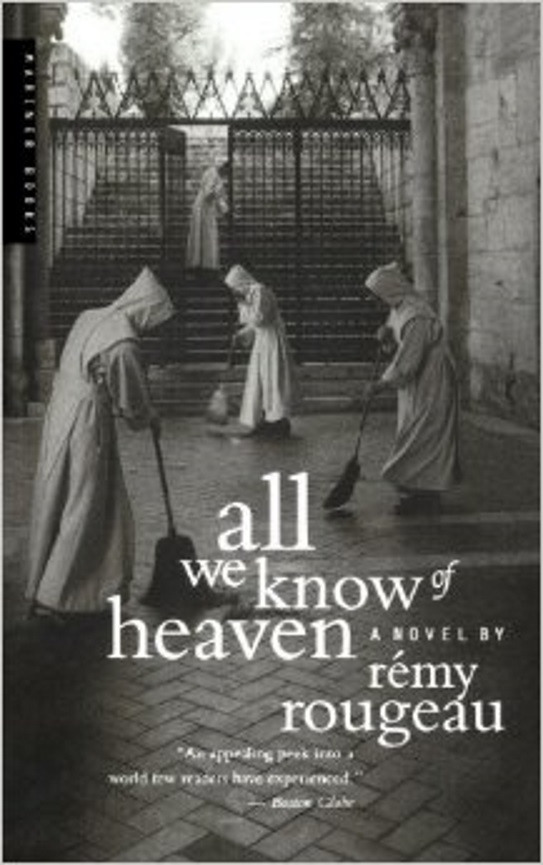
Recent Comments